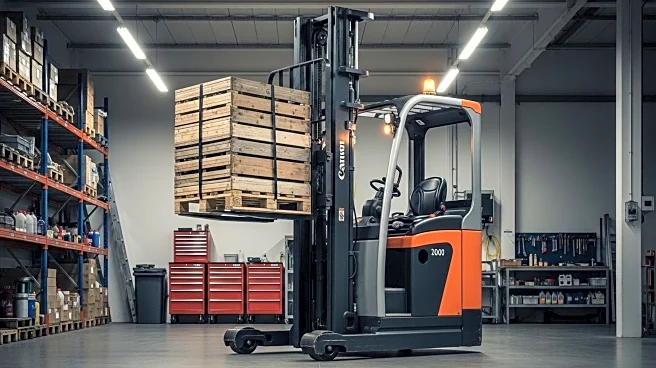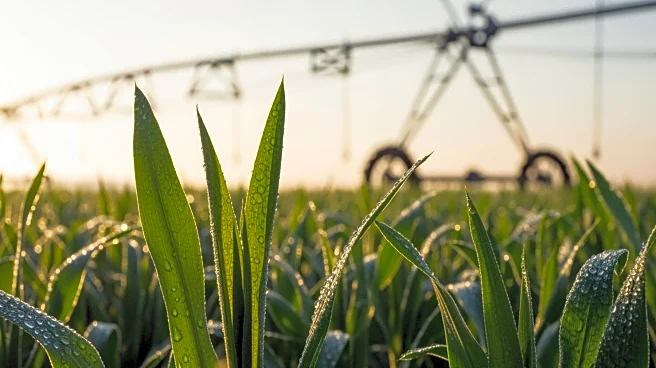What's Happening?
Jason Reis, a farmer from Lime Springs, Iowa, has creatively repurposed a forklift from a local junkyard to serve as a shop elevator, enhancing the efficiency and safety of moving items to a mezzanine in his workshop. Reis removed the existing staircase and installed the forklift in its place, welding 4x6-inch tubing to the top of the lift and attaching it to the mezzanine floor with joist hangers. The base was secured to the concrete floor with welded tabs. He also added used skid-steer loader pallet forks and constructed a 3x3-foot platform for the lift. The lift is powered by a 12-volt hydraulic pump, a 120-volt maintenance charger, and a dump trailer switch. Reis finds the lift not only useful for transporting items but also as an additional workbench when set at the right height.
Why It's Important?
This innovation highlights the resourcefulness and ingenuity often found in the agricultural sector, where farmers frequently adapt existing machinery to meet their specific needs. By transforming a discarded forklift into a functional shop elevator, Reis has improved the operational efficiency of his farm, potentially setting a precedent for other farmers seeking cost-effective solutions to similar challenges. This approach not only maximizes the utility of available resources but also underscores the importance of innovation in maintaining productivity and safety in farming operations. The broader implication is a potential increase in interest among farmers to explore similar adaptations, which could lead to more widespread adoption of such practices, ultimately benefiting the agricultural community by reducing costs and enhancing safety.
What's Next?
Reis is currently working on improving the speed of the lift, indicating ongoing refinement and optimization of the system. This suggests a continuous improvement mindset, which could lead to further enhancements in the design and functionality of the lift. As other farmers learn about this innovation, there may be increased interest in replicating or adapting the concept to suit different farm environments. This could also inspire further innovations in farm equipment repurposing, potentially leading to new products or services tailored to the agricultural sector's unique needs.
Beyond the Headlines
The adaptation of a forklift into a shop elevator by Jason Reis reflects a broader trend of sustainable practices in agriculture, where resourcefulness and recycling play crucial roles. This approach not only reduces waste by repurposing existing machinery but also promotes a culture of innovation and problem-solving within the farming community. Such practices can contribute to environmental sustainability by minimizing the need for new equipment production and reducing the carbon footprint associated with manufacturing and transportation.









